Is Pickleball an Olympic Sport? Find Out the Latest Updates
Pickleball’s meteoric rise has captivated players worldwide. With its growing international presence, a natural question emerges: Is pickleball an Olympic sport? This article dives into the factors that determine Olympic inclusion, explores pickleball’s current standing, and examines the possibility of seeing it on the world’s grandest sporting stage. Will pickleball join the ranks of Olympic athletes? Let’s explore the path to potential Olympic glory.
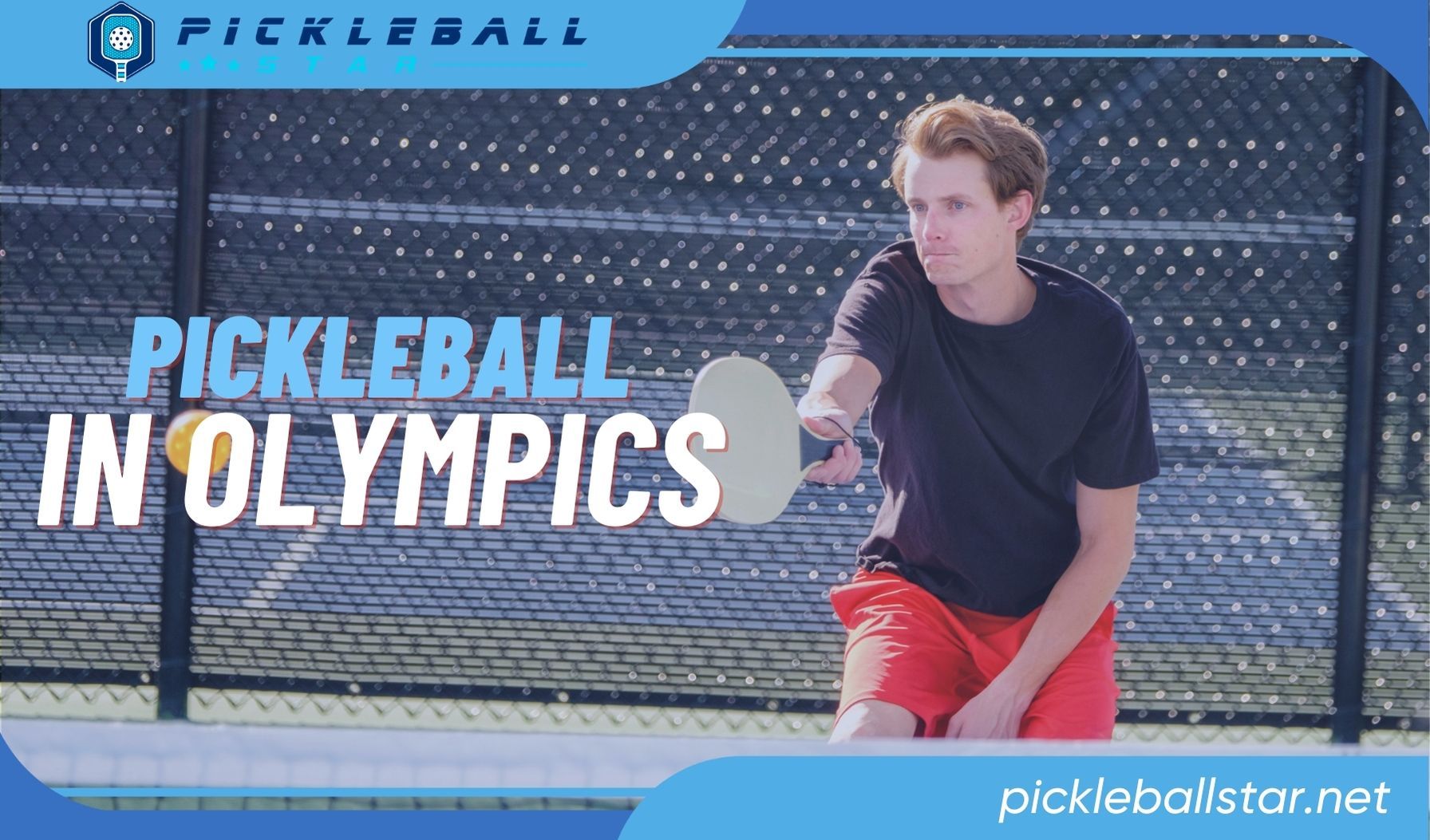
Is Pickleball an Olympic Sport?
Pickleball is not an Olympic sport as of 2024, despite its rising popularity. This paddle sport combines elements from badminton, tennis, and table tennis, captivating players worldwide with its dynamic and accessible gameplay. Enthusiasts and new players join daily, broadening its base and hinting at a promising future.
While pickleball has not yet met the stringent criteria for Olympic inclusion, the path forward shines with potential. The sport’s international federation works tirelessly to expand its reach, aiming for recognition in enough countries to meet the Olympic standards. For fans and players, this progress is a call to action: support your local clubs, participate in tournaments, and share your passion for the sport. This collective effort will not only enrich communities but also elevate pickleball’s chances for Olympic glory.
How Does a Sport Become an Olympic Sport?
The journey to the Olympic pedestal is arduous and strictly regulated by the International Olympic Committee (IOC). Sports aspiring for Olympic inclusion must navigate through stringent criteria that ensure they uphold the essence of the Games.
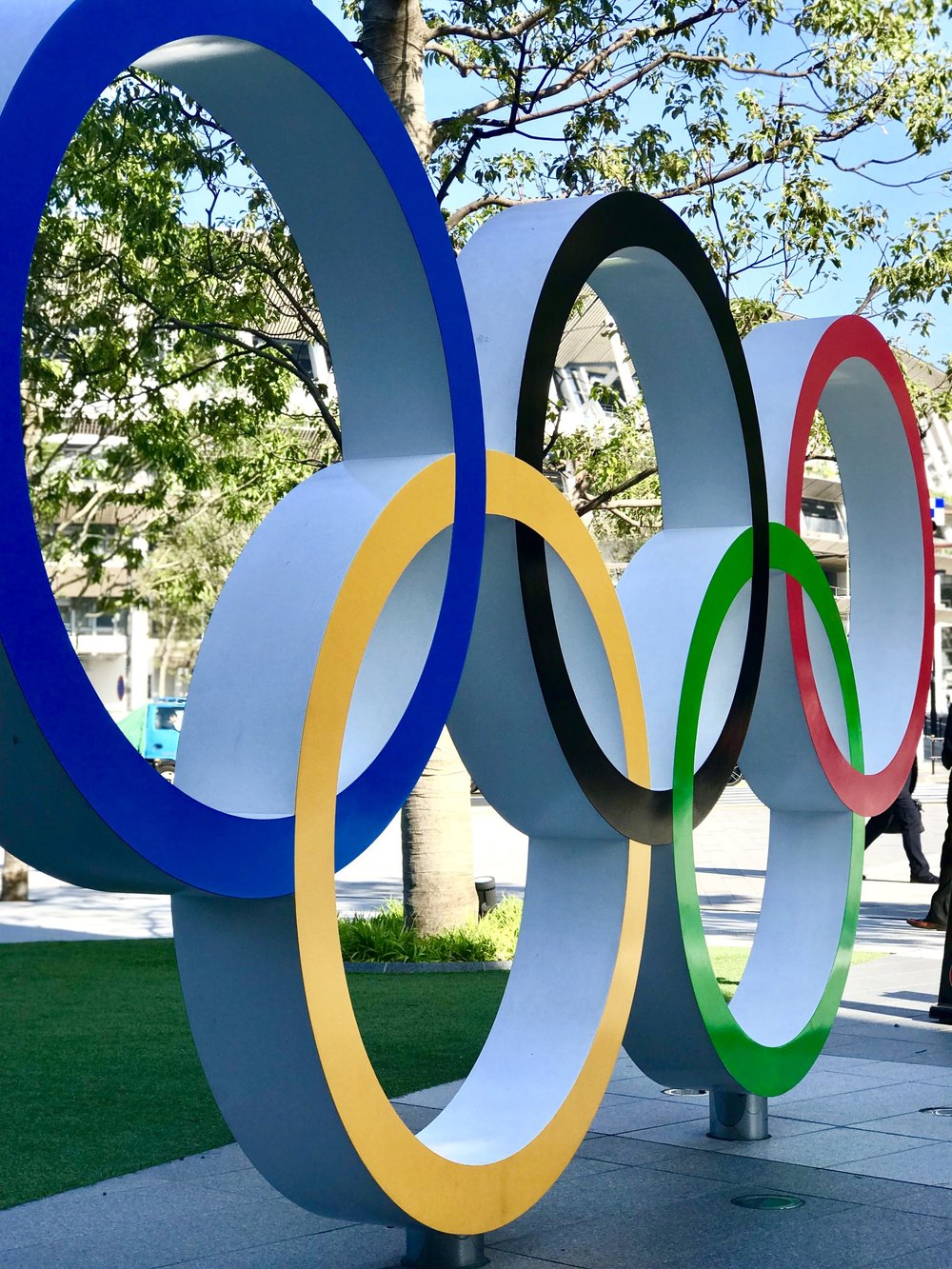
IOC’s Selection Criteria
The IOC utilizes a multi-faceted evaluation process grounded in the sport’s global reach and organizational integrity:
- International Recognition: The sport must be governed by an international federation that ensures its development and regulates competitions worldwide.
- Adherence to Anti-Doping Rules: Compliance with the World Anti-Doping Agency (WADA) standards is mandatory to promote fair play and health.
- Global Participation: The sport should be practiced by men and women across continents and a substantial number of countries.
- Facility Availability: Suitable venues must be easily accessible and promote the sport’s infrastructure growth.
- Global Appeal: The sport’s ability to engage a diverse and widespread audience bolsters its case for inclusion.
Roadmap for Sports’ Inclusion
The pathway from a nascent sport to an Olympic staple encompasses extensive lobbying, organization, and evidence of popularity. Sports like skateboarding and surfing, which successfully debuted in the Tokyo 2020 Games, exemplify the perseverance required to charm the IOC.
Pickleball’s Current Status
Despite its burgeoning presence in recreational and competitive realms, pickleball is not yet an Olympic sport. Multiple factors contribute to this status quo, primarily hinging on its comparative infancy and organizational strides needed to meet the exclu-sive Olympic benchmarks.
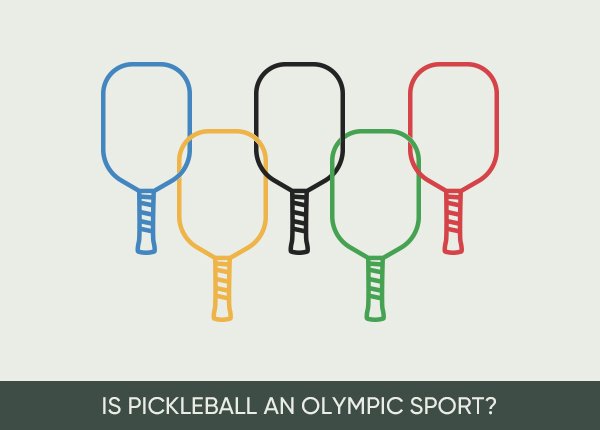
Factors Preventing Inclusion
Several pivotal challenges hinder pickleball’s Olympic ascension:
- Lack of Global Participation: Though considerable in the US, pickleball’s presence in other continents trails behind sports that boast a century-long legacy.
- Organizational Maturity: The International Federation of Pickleball (IFP) must consolidate governing bodies in numerous countries and orchestrate world championships and systematic rankings.
International Federation of Pickleball (IFP)
The IFP has embarked on a mission to fulfill IOC’s prerequisites, striving to:
- Expand pickleball’s outreach in regions like Europe and Asia.
- Ensure adherence to international regulations and anti-doping policies.
- Promote tournaments that gather global participation.
While these measures are promising, pickleball enthusiasts must recognize that gaining prominence akin to legendary sports is a marathon, not a sprint.
Arguments for Pickleball’s Inclusion
Pickleball holds persuasive arguments that advocate for its Olympic inclusion. Its dynamic gameplay, inclusive ethos, and unique features make it an endearing candidate for the global sports extravaganza.
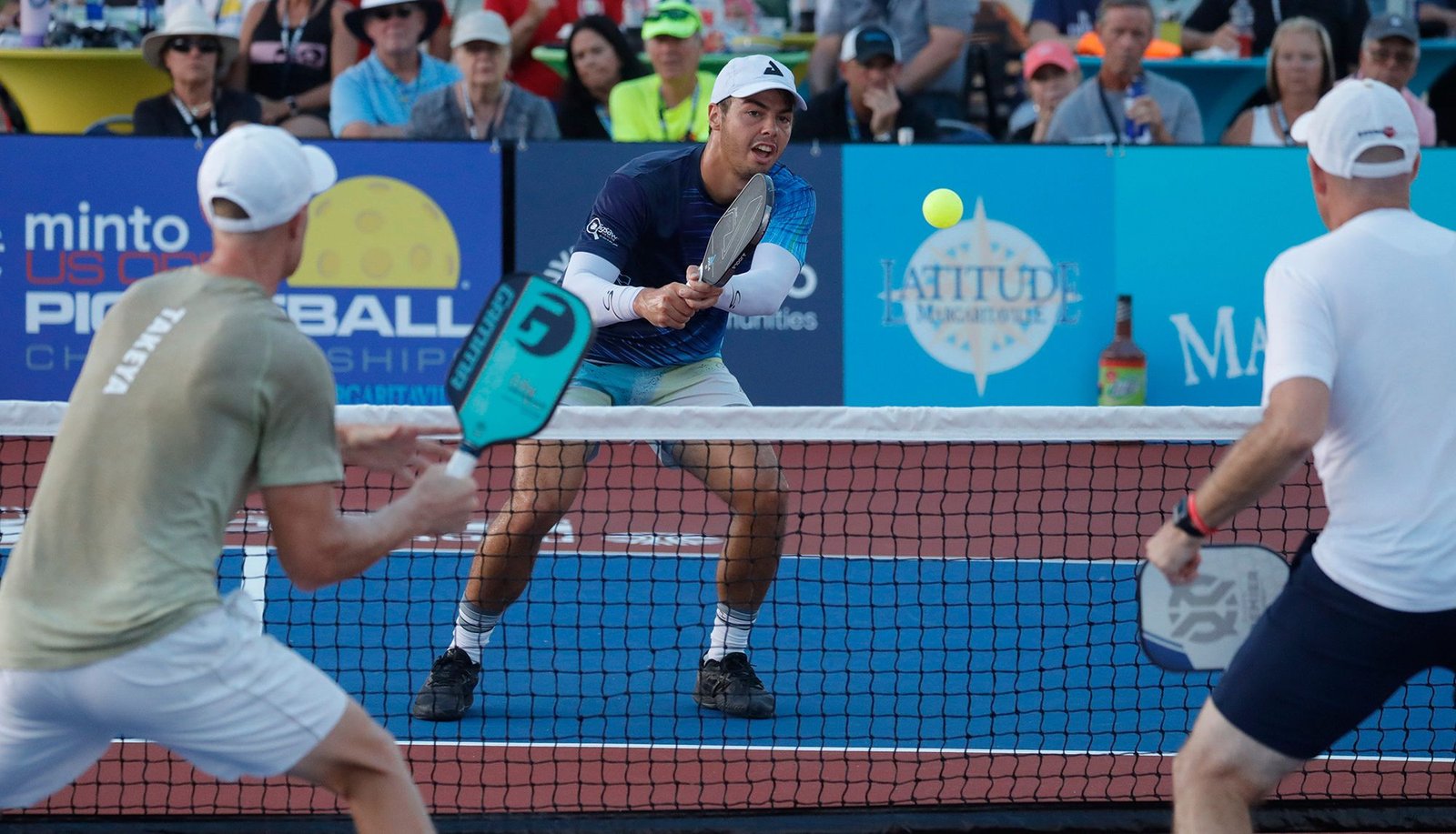
Rapid Growth in Popularity
Pickleball’s exponential growth is its most potent argument:
- Accessibility and Adaptability: Pickleball courts can be easily set up, and the sport’s rules are simple, attracting novices and veterans alike.
- Community Bonds: The sport fosters camaraderie, making it a social glue in neighborhoods.
- Health Benefits: Beyond fun, pickleball offers substantial physical exercise conducive for all age brackets.
Appeal Across Demographics
Pickleball arguably holds a universal charm:
- Inclusive for All Ages: Seniors find it accessible due to its modest physical demands, while younger players relish the competitive and strategic facets.
- Mixed-Gender Competitions: Few sports cater to mixed doubles as effectively as pickleball, promoting gender equality and diverse teamwork dynamics.
Economic Viability
The logistical and economic feasibility of integrating pickleball into the Olympics is favorable:
- Less infrastructure investment to retrofit existing badminton or tennis courts.
- Equipment costs are minor, enhancing inclusivity across varied socioeconomic strata.
Challenges for Pickleball
Despite its merits, pickleball must negotiate several obstacles to realize its Olympic ambition. These challenges underscore the need for strategic growth, comprehensive representation, and an appeals-to-spectators ethos.
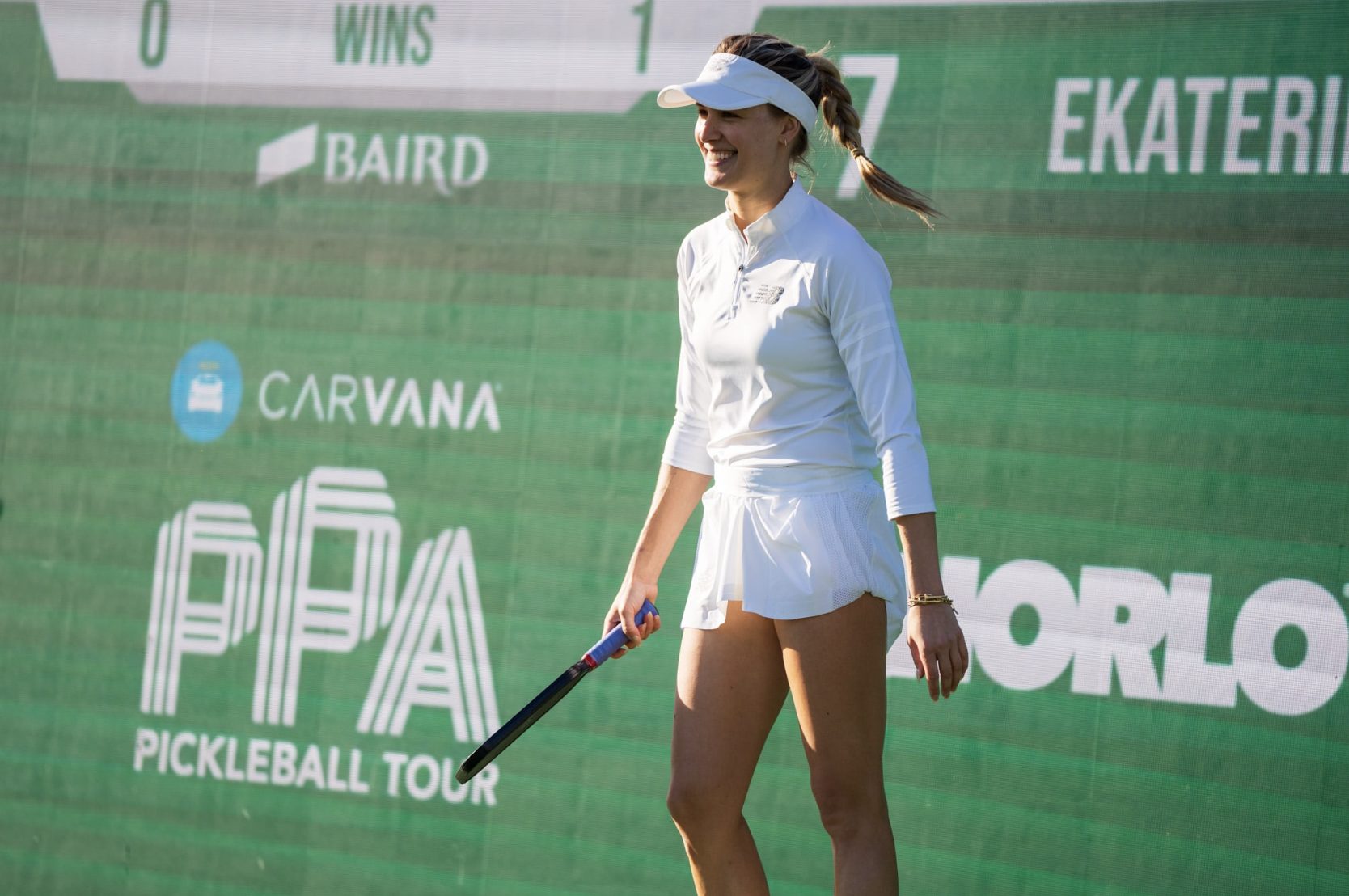
Increasing International Participation
Pickleball must transcend its North American stronghold to earn global acclaim:
- Grassroots Initiatives: Efforts to introduce pickleball in schools, local communities, and sports clubs worldwide.
- International Tournaments: The IFP should emphasize hosting and promoting world championships to accrue diversity in participation.
Demonstrating Global Appeal
The sport must establish a reputation for engaging viewers across different cultures:
- Marketable Gameplay: Highlighting the strategic depth, fast-paced nature, and athletic prowess evident in competitive matches.
- Broadcast Potential: Ensuring televised matches capture the sport’s vibrancy and excitement, making it a crowd-puller event.
Competition from Emerging Sports
Pickleball’s aspirations must cannily navigate an ecosystem where other emerging sports vie for the same recognition:
- Showcasing Uniqueness: Emphasizing pickleball’s blend of simplicity, wit, and agility to stand out.
- Collaborative Advocacy: Aligning with other newcomers to present a united front, enhancing the collective appeal to the IOC.
The Future of Pickleball in the Olympics
The trajectory of pickleball’s Olympic journey remains speculative but promising. Strategic expansion, community engagement, and persistent advocacy can potentially write an epochal chapter in its history.
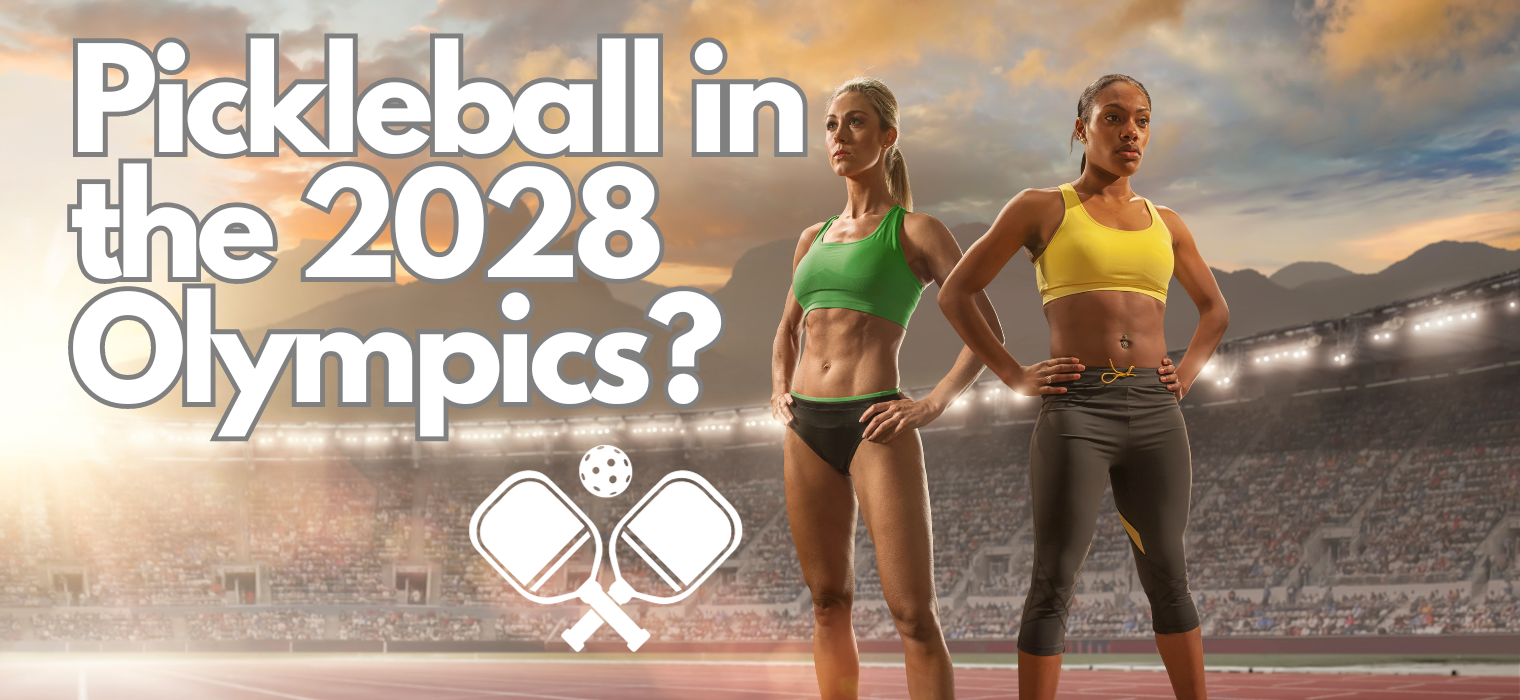
Realistic Timeline
While predicting definitive timelines is challenging, some steps could delineate a clearer path:
- Short-term Goal: Inclusion as a demonstration sport in upcoming Olympics to gauge and build audience interest.
- Mid-term Goal: Organizing regular world championships and amassing substantial international attention.
- Long-term Goal: Achieving full Olympic status by consolidating worldwide popularity and operational excellence.
IFP’s Endeavors
The IFP continues to push the envelope by:
- Hosting international clinics and outreach programs.
- Ensuring transparency and compliance with global sports regulations.
- Building a coalition of supportive national federations to back the Olympic bid.
Conclusion
Pickleball’s future as an Olympic sport is a story still being written. While numerous hurdles remain, the sport’s rapid growth, inherent appeal, and community-driven momentum fuel its Olympic aspirations. Pickleball’s journey emphasizes the irrefutable human spirit of passion, persistence, and belief in the uncharted possibilities.
Join the pickleball movement and support the sport’s journey to the Olympics. Get involved, play the game, and cheer on pickleball as it continues to grow and evolve. Embrace the spirit of this unique sport, ensuring its legacy endures and thrives on the world’s grandest stage.
